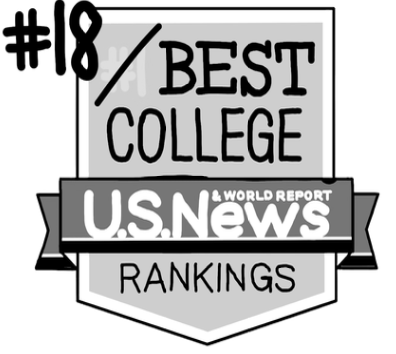After exposing inaccurate reports from his own school, Columbia mathematics professor Michael Thaddeus ignited the fall of Columbia’s rankings in the annual US News and World Report. Earlier this month, Columbia’s ranking on the annual list fell from #2 to #18 after Thaddeus’ divulgement of the university’s inaccurate reports of financial data, terminal degrees, graduation rates, and other student and faculty data.
With such a significant drop in rankings, students are beginning to question the legitimacy of both U.S. News and World Report and the college ranking system at large. How much weight can we really place on a system that relies on universities’ self reported data?
Though both fragile and subjective, the national college ranking system shapes millions of applicants’ decisions each year. Why do we worship a system we know to be flawed and easily manipulated? Harvard first-years reflect on their own ideas about ranking when weighing college choices.
“The ranking of the school was a pretty big part of my decision,” said Charisma Chen ’26. “It’s all very interconnected. The choice to go to college is an economic one. What major provides the best opportunities. A lot of the economic perspective is tied to prestige.. that’s how you’re perceived in the workforce. As problematic as that credentialism is, that’s our reality and you have to have an element of your thinking that accounts for that.”
“A prestigious school is one where the name carries some weight,” said Zoe Price ’26. “And that was important to me. I had to pick between a few schools and I thought the name ‘Harvard’ would carry me a bit … I think some of the negative perception of prestige comes from people who didn’t get in… Harvard became prestigious because of the education, but now it’s about something else. People know you’re smart, but you have to be smart to get into other schools too. Now it’s kind of morphed into something else.”
Evaluating a school’s level of prestige is far more difficult than identifying a numerical ranking on a website. Yet it is a crucial consideration for prospective students, representing not just a school’s quality of education, but also its historical reputation.
“My parents emigrated to the US,” said Chen ’26. “It’s a bit of a stereotypical story but they wanted their children to go to a prestigious university. College is so tied to the United States—internationally that’s what it’s known for… and so I don’t think people will think about Columbia differently based on the number 18, just like I don’t think employers would factor the ranking change into their decision to hire an applicant with a Columbia degree.”
Not all students report ranking as a crucial driver of their decision to attend Harvard.
“I was planning on applying to Harvard irrespective of the ranking,” said Claire Swadling ’26.” I think that every ranking system is subjective… and these numbers that try to distinguish between number two and number three are meaningless. I wouldn’t trust them too much. But prestige was a big factor. I was choosing between Harvard and a school that gave me a big scholarship. I came to Harvard for the community, but the prestige of the institution helped to confirm my decision.”
Whether your college application spreadsheet had a designated column for US News rankings or you chose Harvard for its vibrant community, the hegemonic college ranking system and annual uproars at its fluctuations are here to stay. At number one, number three, or number 18, may we take pride in the Harvard experience – and “count” only what really matters: friendships formed, topics discussed, and everything our school has to offer.
Sarah Toth ’26 (Sjtoth@college.Harvard.edu) chose Harvard for Dean Khurana’s uplifting Instagram posts.

